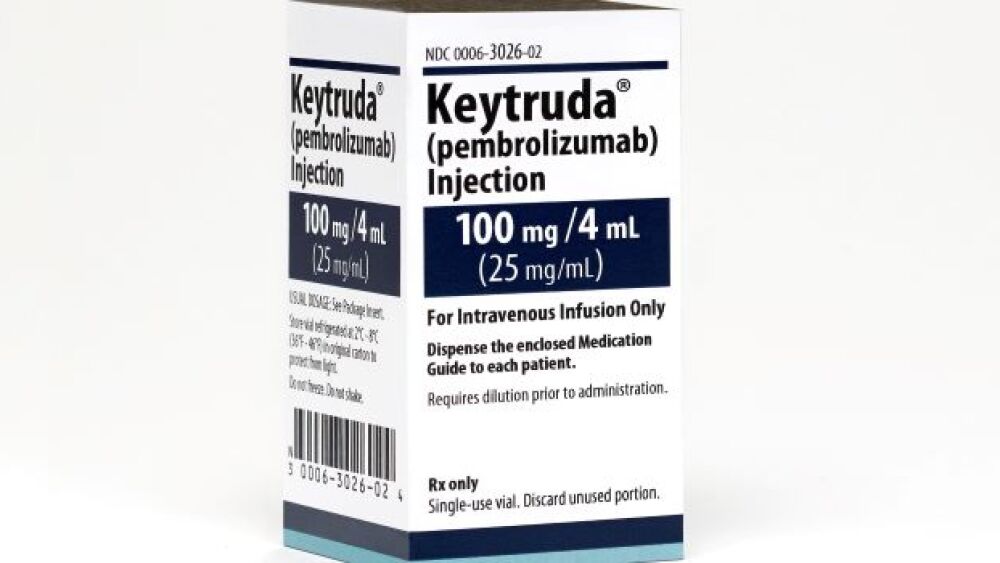Merck announced positive results from the late-stage KEYNOTE-522 study that should support its previous attempt that was stymied by a regulatory advisory committee in February and rejected by the U.S. FDA in March.
Copyright © 2009-2021 Merck Sharp & Dohme Corp., a subsidiary of Merck & Co., Inc., Kenilworth, N.J., U.S.A. All rights reserved.
It appears as though Merck’s Keytruda will get a second shot on goal as a neoadjuvant treatment for triple negative breast cancer. This morning Merck announced positive results from the late-stage KEYNOTE-522 study that should support its previous attempt that was stymied by a regulatory advisory committee in February and rejected by the U.S. Food and Drug Administration in March.
The FDA issued a Complete Response Letter in March after the Oncologic Drugs Advisory Committee wanted to see more long-term data in high-risk early-stage triple-negative breast cancer. Now, it appears Merck may have the data necessary to shepherd Keytruda through the regulatory process.
The latest data from the Phase III KEYNOTE-522 trial assessing Keytruda, the company’s vaunted checkpoint inhibitor, shows the study met the dual primary endpoint of event-free survival (EFS) as a treatment of patients with high-risk early-stage triple-negative breast cancer. Keytruda was being studied in combination with chemotherapy as a pre-surgery neoadjuvant and as a standalone therapy (adjuvant) following the procedure. Keytruda is the first anti-PD-1 therapy to show a statistically significant improvement in EFS as neoadjuvant and adjuvant therapy for TNBC, Merck said.
Following an interim analysis of data in the KEYNOTE-522 study from the Independent Data Monitoring Committee, the data shows that Keytruda and chemotherapy as a neoadjuvant followed by adjuvant use of Keytruda showed a statistically significant and clinically meaningful improvement in EFS compared with neoadjuvant chemotherapy alone.
Breast cancer is the most common cancer among women worldwide. In triple-negative breast cancer, tumor cells lack hormone receptors and do not have excess HER2 protein. Approximately 15% of breast cancers are triple-negative based on the results of diagnostic tests.
Roy Baynes, senior vice president and head of global clinical development and chief medical officer at Merck Research Laboratories, said Keytruda is the first immunotherapy to show positive results for event-free survival in patients who have been diagnosed with high-risk early-stage TNBC.
“The improvement in pathological complete response rates initially observed following pre-operative treatment was encouraging, and now that we are seeing the data mature after four years to include a statistically significant improvement in event-free survival, we look forward to working with the FDA and other global authorities to bring this new option to patients as quickly as possible. We are grateful to the study participants who are critical to our efforts to advance potential treatment options for patients with TNBC,” Baynes said in a statement.
Prior to this morning’s announcement, Merck reported that the KEYNOTE-522 study met its other primary endpoint of pathological complete response (pCR). That data showed a statistically significant increase in pCR for Keytruda plus chemotherapy versus chemotherapy alone as neoadjuvant therapy in patients with early-stage TNBC, regardless of PD-L1 status.





